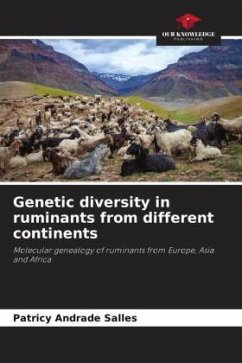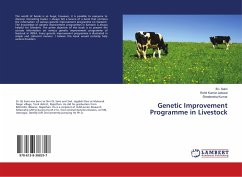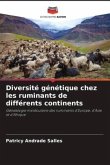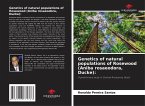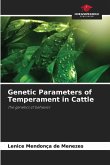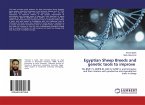The conservation of genetic resources of domestic animals has received special attention in recent years, especially in relation to native populations. The search for strategies for the sustainable use of this diversity is of great importance to public and private entities around the world. The FAO defines diversity as the level of genetic polymorphism. Native domesticated ruminant species include goats, sheep and cattle from Europe, Asia and Africa. These animals are considered hardy, well adapted to local conditions and generally have dual aptitude. The preservation of these local breeds is important for maintaining cultural traditions, such as the manufacture of typical products by small producers, associated with regional customs. Due to their low productivity and lack of knowledge of their genetic potential, many breeds are threatened with extinction and are restricted to a few conservation herds. This article will look at the use of molecular markers to study the genetic diversity of native ruminants of recognized importance to local biodiversity that are catalogued and protected by the FAO.
Bitte wählen Sie Ihr Anliegen aus.
Rechnungen
Retourenschein anfordern
Bestellstatus
Storno

